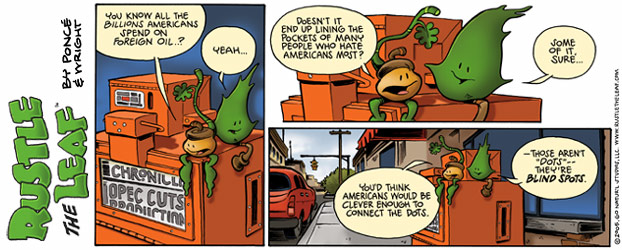FEATURE: Just an 'ordinary' house
 One of the things that struck me about Donnachadh McCarthy's London home, visited in the first episode of Its Not Easy Being Green, was just how 'ordinary' it was. He doesn't live in a big farm house like the Strawbridge's, but in a modest house, in a leafy suburb of London. Hiding behind this 'ordinary' house, is energy saving features, such as solar panels. Plus Donnachadh utilises his greywater and rainwater with simple DIY solutions.
One of the things that struck me about Donnachadh McCarthy's London home, visited in the first episode of Its Not Easy Being Green, was just how 'ordinary' it was. He doesn't live in a big farm house like the Strawbridge's, but in a modest house, in a leafy suburb of London. Hiding behind this 'ordinary' house, is energy saving features, such as solar panels. Plus Donnachadh utilises his greywater and rainwater with simple DIY solutions.These days its common for new builds and conversions, such as in 'Grand Designs' to utilise energy efficient systems or take ecological decisions, like sourcing locally or using sympathetic materials, such as cob or lime. Although Episode 3 of Grand Designs recently gave debate to the use of eco-materials where sourced from all over the world - is it worth the transport costs? (This is similar to the argument for not buying organic food from far flung places.)
In short, our houses don't need to be grand to incorporate energy efficient and eco-friendly innovations. The Western Mail recently featured the Vaughan family from Powys, headed by Bob Vaughan, who works for the Environment Agency. With this background Bob obviously had a head start when considering the ecological elements of his two story extension. In all, the Vaughan family incorporated the following:
extra wall and roof insulation; rainwater harvesting tank for toilets and washing machine; under floor heating; window frames using locally grown, sustainable welsh oak; argon filled windows; and a drainage system to ensure no water 'run-off' from their land
Bob noted that he had also recycled bricks and tiles which were left over from pulling part of the garage down. Despite spending a whopping £120,000 - he thinks the money was well spent, looking at long term savings. Whilst I grant you his project wasn't entirely simplistic, he feels that "if we can do things on a very ordinary house then everybody can do it". UK Energy Minister Malcolm Wicks recently stated "advances in technology mean that products are now available that allow the individual to regain this self-sufficiency."
If we can just do one thing to our ordinary house - from installing a water butt or using grey water to investing in solar panels, then we can save energy and money! What is clear is that alternative energy is big business - did you know that just 3 companies in the UK manufacture photovoltaic (solar) panels and 2 of those are in Wales? In contrast there seems several companies flogging these things; how do we know who is the best company to go to? I'll be posting soon on my investigation into where to find information and buy solar panels/ wind turbines - I'm hoping to take this step for myself......
The story of the Vaughan's home improvements was shown as part of the 'Designer Homes' series, on the Discovery Real Time channel.
Ella
[Source: Western mail 5/5/06]
Pictured is Donnachadh McCarthy's book on steps to a greener lifestyle, available at his site
NOTE: Al has done a great interview with Donnachadh which he will be posting shortly.
Technorati tags:
cityhippy
green
environment
sustainable
alternatives
recycling

































1 Comments:
Hi,
This may not be the place but I would just like to ask about solar power. How much energy does it take to make a solar panel comapred to how much it is likely to create in the UK? Assuming I buy it from a local manufacturer then the transport costs are lowered but it must take a reasonable ammount of energy to produce the actual cells, the frame, and the relevent electronics to make it useful. Are we not just using large ammounts of electricity generated in the main using Coal to create a false feeling of "Zero Emmisions"?
On a diffirent subject, how do you get the grey/rain water back up to flush the toilet upstairs? Or do I have to have a tank strapped to the side of my house?
Sorry it's all questions but they have been bugging me for a bit!
john
Post a Comment
<< Home